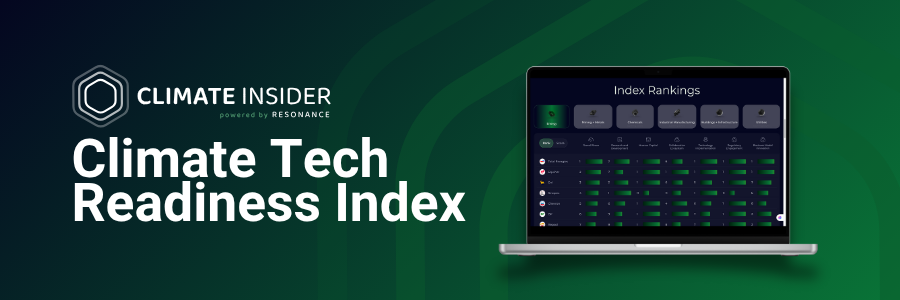As global leaders converged in Azerbaijan for COP29, starkly different perspectives emerged on how to address climate change—a division accentuated by the latest report from the Global Carbon Project. This research underscored the urgency of cutting emissions, revealing that carbon dioxide emissions from fossil fuels hit record highs in 2024. To limit warming to 1.5 degrees Celsius in alignment with the Paris Agreement, the report now suggests that net-zero emissions would need to be achieved by the late 2030s, a full decade ahead of previous targets.
The urgency of the findings contrasted sharply with competing approaches from world leaders, as some called for rapid decarbonization while others championed a “pragmatic” pace that prioritizes economic resilience.
A Divisive Stand on Fossil Fuels
The conference saw a strong defense of fossil fuel reliance from leaders like Italian Prime Minister Giorgia Meloni and Greek Prime Minister Kyriakos Mitsotakis. Meloni argued that energy demand would inevitably increase with global population growth, and emphasized a need for “realistic” decarbonization goals. She stated, “An approach that is too ideological and not pragmatic… risks taking us off the road to success,” adding that fossil fuels remain irreplaceable for now.
Mitsotakis mirrored this sentiment, calling for a “smart” Green Deal that balances climate goals with industrial competitiveness. He questioned the feasibility of a rapid transition, suggesting a “somewhat slower” path that would allow industries to adapt. “We need to ask hard questions about a path that goes very fast, at the expense of our competitiveness,” he said, raising concerns that a swift transition could push Europe’s industries into “industrial oblivion.”

These perspectives underscore a cautious approach to climate targets, one that contrasts starkly with calls for urgent action from leaders of climate-vulnerable nations.
An Urgent Plea from Climate-Affected Nations
For leaders from countries directly threatened by climate change, the discussion was less about balance and more about survival. Prime Minister Feleti Penitala Teo of Tuvalu, an island nation increasingly imperiled by rising sea levels, issued an impassioned plea for decisive action. “For Tuvalu and similarly placed countries, there is simply no time to waste,” he said, underscoring the existential threat facing Pacific islands if fossil fuel use persists.
Philip Davis, Prime Minister of the Bahamas, also stressed the moral imperative for wealthy nations to provide sufficient funding for climate-vulnerable nations. Pointing out that small island nations like his own spend 18 times more on debt repayment than they receive in climate finance, Davis expressed frustration: “The world has found the ability to finance wars, the ability to mobilize against pandemics… Yet when it comes to addressing the most profound crisis of our time, where is that same ability?”
Financing the Transition: A Contentious Climate Finance Debate
The issue of climate finance remains a key sticking point, with leaders struggling to reconcile the scale of needed funding with the willingness of wealthier nations to contribute. Developing nations have long sought a substantial annual commitment from developed countries, with the latest draft agreement proposing a figure of at least $1.3 trillion. This target far exceeds the current annual contributions of around $100 billion provided by wealthier countries, including the U.S., the EU, and Japan.
However, economic pressures at home have made some wealthier nations hesitant to pledge substantial new funds. In contrast, developing nations argue that meaningful financial support is essential for them to build climate resilience and transition to cleaner energy sources. This financing gap highlights an unresolved tension: whether wealthier nations will step up their contributions or maintain the status quo, potentially leaving the most vulnerable countries to face the consequences of climate change largely unaided.
Climate Insider Analysis
The divergent positions at COP29 illustrate a complex balancing act in global climate strategy. On one side, the immediate, existential needs of climate-vulnerable nations, like Tuvalu and the Bahamas, reflect a moral imperative for swift action and substantial financial support. The commitment sought by developing nations, at $1.3 trillion annually, underscores the scale of the challenge and signals the inadequacy of current pledges. Without bridging this funding gap, these countries will face significant risks and escalating climate impacts.
Conversely, wealthier nations like Italy and Greece, concerned about industrial competitiveness, are advocating for a more measured pace to avoid economic disruptions. While these perspectives highlight legitimate considerations about social and economic stability, the record-high emissions data indicates that the “slower” approach may not suffice to meet critical climate targets. As debates continue over finance and timelines, the question remains: will the global community prioritize immediate climate stabilization, or will pragmatism around economic concerns continue to slow collective action?
Ultimately, COP29 underscores the challenges of aligning diverse national interests with urgent climate goals. Climate Insider anticipates that bridging these divides will be crucial in the months ahead, as leaders prepare to meet the rapidly approaching carbon-neutrality deadlines that the latest research now demands.
Featured Image: Credit: COP29








